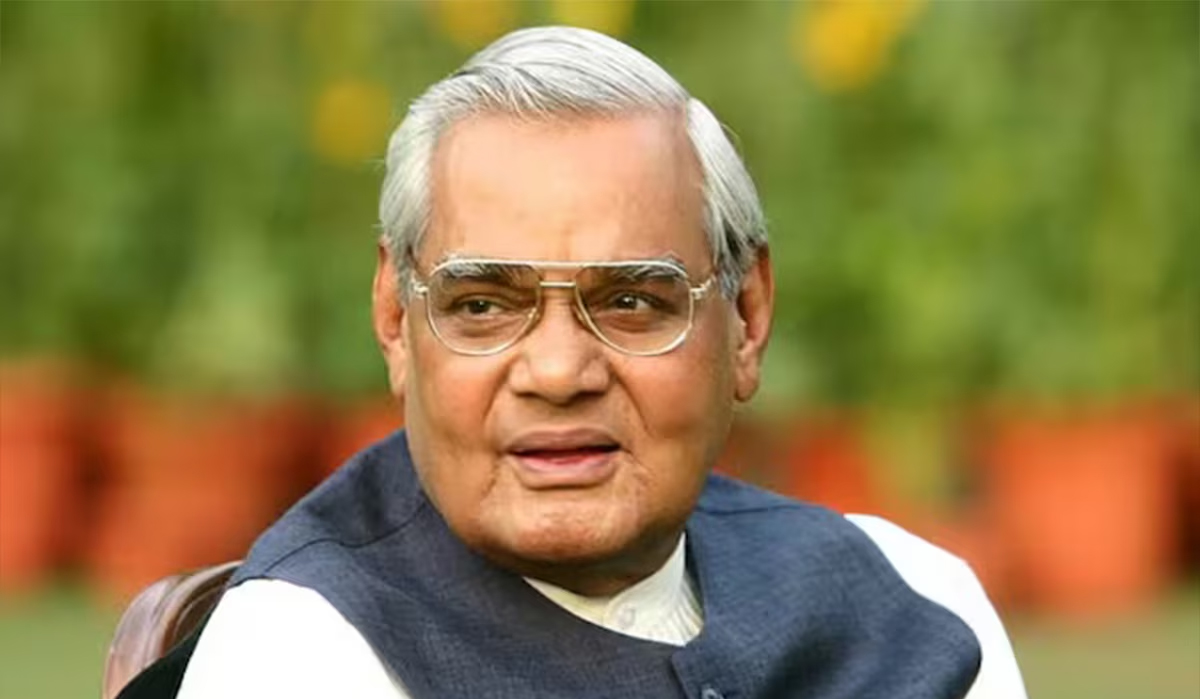LAHORE, Dec 24: “Even if the opportunity was missed, we must make another attempt,” remarked Punjab Assembly Speaker Malik Ahmad Khan when discussing Atal Bihari Vajpayee’s 1999 ‘bus yatra’, an audacious initiative by the then Indian Prime Minister aimed at improving India-Pakistan relations.
On February 19, 1999, Vajpayee journeyed to Lahore, where he and Pakistani Prime Minister Nawaz Sharif signed the Lahore Declaration during a momentous summit. This agreement marked a significant breakthrough, but just months later, a Pakistani incursion precipitated the Kargil War.
This Wednesday marks the 100th birth anniversary of Vajpayee.
“Vajpayee’s visit to Lahore was a pivotal moment in history. Although the chance was squandered, we should seek to rekindle the effort. With Prime Minister Narendra Modi, who embodies Vajpayee’s vision, steering India and Shehbaz Sharif, Nawaz’s brother, leading in Pakistan, there exists a genuine opportunity to rejuvenate the peace dialogue,” stated Khan, a prominent member of the Pakistan Muslim League-Nawaz (PML-N).
Khan emphasized that the region’s future hinges on free trade and unhindered movement between nations.
“Achieving peace in the region isn’t merely a noble idea; it is essential for growth and prosperity,” added the Punjab Speaker.
Another senior PML-N figure from Punjab, Mohammad Mehdi, deemed Vajpayee’s Lahore visit historic, asserting that it could have paved the way for enduring peace, had the Kargil conflict not occurred.
“The Western media focused heavily on Vajpayee’s visit, which took place shortly after both nations became nuclear powers,” Mehdi noted, referencing the nuclear tests conducted by India and Pakistan in May 1998.
“There was palpable excitement within PML-N ranks when Vajpayee arrived in Lahore in February 1999. His statement that ‘Pakistan is a reality, and both countries need to move forward and leave the past behind’ inspired hope among many,” Mehdi recalled.
Unfortunately, the subsequent Kargil conflict thwarted these peace efforts, he lamented.
Mehdi pointed out that Jamaat-e-Islami (JI) organized protests during Vajpayee’s visit, believed by many to have been orchestrated by the military under General Pervez Musharraf.
“Jamaat-e-Islami activists even assaulted the Turkish ambassador’s vehicle near Lahore Fort, mistaking it for an Indian delegation,” he described.
Mehdi also expressed his belief that back-channel communications between Pakistan and India are still ongoing.
“Currently, relations between the two nations are at an all-time low. Neither country has a diplomat in the other’s capital. However, business interests on both sides strongly desire to restore ties to enhance trade and utilize shorter routes through Pakistan to access Central Asia and Europe,” he stated.
Political analyst Brig (retd.) Farooq Hameed observed that Nawaz Sharif should have engaged the influential Pakistan Army in the peace initiative.
“The effort failed because the military was not consulted, culminating in the Kargil conflict and the collapse of the peace process. Had Nawaz Sharif involved the military prior to Vajpayee’s visit, the likelihood of successful talks would have increased,” he noted.
Hameed remarked that Nawaz has consistently aimed to improve relations with India, even expressing a wish to meet Prime Minister Narendra Modi upon returning to Pakistan last year after a four-year self-imposed exile in London. However, he highlighted that Nawaz’s younger brother, Prime Minister Shehbaz Sharif, has not made any recent public statements reflecting similar aspirations.
“Nawaz should first confer with Shehbaz, who has the military establishment’s support, to ascertain if he also shares this vision for enhancing relations with India,” he suggested.
He also pointed out the lack of tangible outcomes following the recent visit of Indian Foreign Minister S. Jaishankar to Pakistan.
“The majority of Pakistanis are not anti-India. Unlike in India, politicians here do not need to criticize India to gain electoral support,” Hameed asserted.
However, he noted that terrorism remains a significant barrier to reconciliation. India has frequently accused Pakistan of endorsing terrorism, whereas Pakistan now blames India for attacks in Balochistan. (Agencies)


Leave a Reply